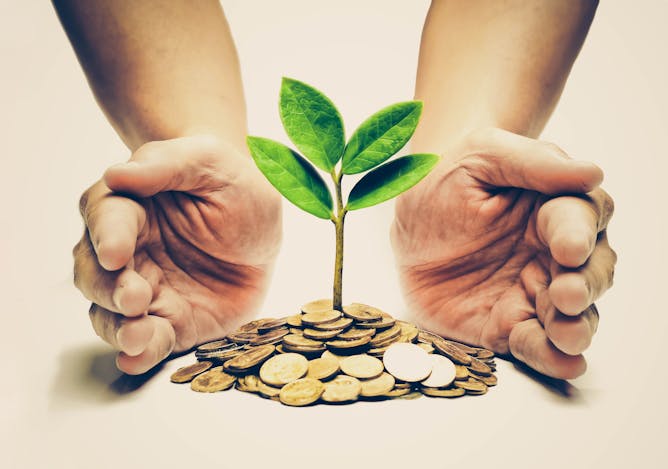|
Many philanthropists and governments believe that small loans to individual borrowers can make huge strides against poverty. The evidence, however, isn’t exactly on their side. Business professor Frithjof Arp and his colleagues have tried to work out what really happens to this money – and why microfinance hasn’t yet put loan sharks out of business.
While we’re on the subject of disruption, most people know artificial intelligence and automation are transforming jobs for both blue-collar and white-collar workers. These technologies are about to bring even more substantial changes to higher education, writes AI researcher and computer scientist Subhash Kak. If colleges and universities don’t adopt technology in a number of ways, “they risk becoming obsolete,” he writes.
|

Give a man the means to borrow, so the argument goes, and he can work himself out of poverty. But do microfinances’ claims stand up?
wk1003mike/Shutterstock
Frithjof Arp, University of Nottingham
Small loans from governments and philanthropists are often held up as a route out of poverty. But proper research into whether they work is thin on the ground.
|
Science + Technology
|
-
Subhash Kak, Oklahoma State University
Artificial intelligence and automation are bringing changes to higher education that will challenge, and may even threaten, traditional universities.
|
|
Cities
|
-
Sophie-May Kerr, University of Wollongong
In Sydney, families with children now account for one in four households living in apartments. The expectations and design of apartments have not kept up with this rapid demographic change.
|
|
Politics + Society
|
-
Steven Friedman, University of Johannesburg
A closer look at the resolution of South Africa's ruling party, the ANC, show that it won't undertake a radical economic transformation agenda as suggested by media reports.
-
Yohannes Gedamu, Georgia Gwinnett College
For the first time in years Ethiopia's ruling coalition faces real political competition from two parties within its own ranks. Can they usher in democracy after nearly 30 years of authoritarianism?
|
|
Business + Economy
|
-
Nader Habibi, Brandeis University
Although the unrest that shocked Iran's ruling elite appears to be over, there are several reasons to think this won't be the last time disaffected citizens take to the streets.
|
|
Environment + Energy
|
-
Alex Chapman, University of Southampton; Van Pham Dang Tri, Can Tho University
It looks as if climate change is forcing 24,000 people to leave the Mekong Delta every year.
|
|
Health + Medicine
|
-
Sylvain Charlebois, Dalhousie University
Taxing a food product like meat, which has been entrenched in our culture for so long, is silly. We should let the market evolve and allow consumers to make their own choices.
|
|
|
|